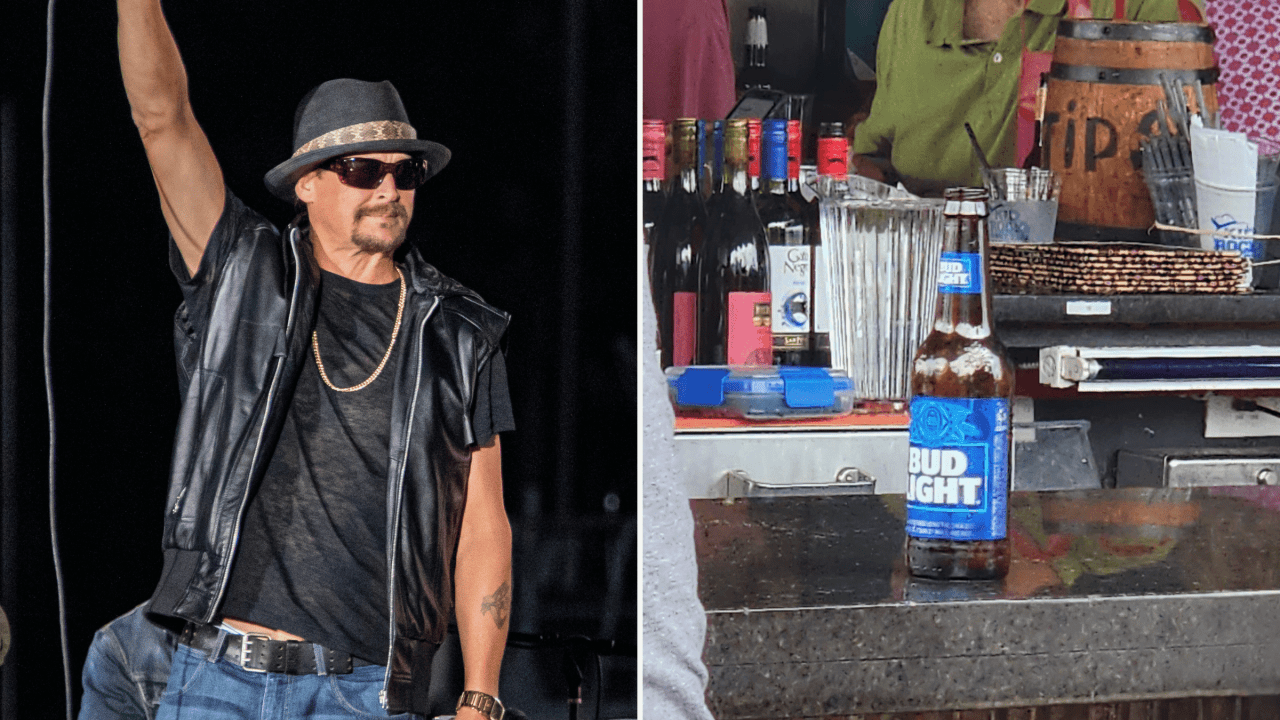Kid Rock, known for his unapologetic persona and outspoken views, has long been a vocal critic of what he sees as excessive political correctness and virtue signaling. Throughout his career, he has used his platform to challenge societal norms and push back against what he views as the encroachment of “woke” ideology into mainstream culture. His decision to take legal action against Bud Light underscores his commitment to standing up for his beliefs, even in the face of formidable opposition.
At the heart of Kid Rock’s lawsuit is his contention that Bud Light’s marketing campaigns have unfairly targeted him and damaged his reputation. The lawsuit alleges that Bud Light’s recent advertising efforts, which have included references to “woke culture” and social justice themes, have portrayed Kid Rock in a negative light and caused harm to his brand. By seeking $100 million in damages, Kid Rock is sending a clear message that he will not tolerate being used as a pawn in Bud Light’s marketing strategy.
The lawsuit also highlights a broader cultural divide that has been brewing in recent years, as companies like Bud Light increasingly embrace progressive messaging in their advertising campaigns. While some consumers applaud these efforts as a sign of corporate responsibility and social awareness, others, like Kid Rock, see them as cynical attempts to capitalize on trendy causes and pander to a specific demographic. Kid Rock’s lawsuit represents a pushback against this trend, as he seeks to hold Bud Light accountable for what he perceives as a betrayal of its core values.
The timing of Kid Rock’s lawsuit is particularly noteworthy, coming on the heels of Bud Light’s recent PR debacle involving social media influencer Dylan Mulvaney. Last April, Bud Light found itself embroiled in controversy after a social media promotion featuring Mulvaney backfired, leading to accusations of insensitivity and hypocrisy. The fallout from the Mulvaney fiasco served as a wake-up call for Bud Light, prompting the company to reassess its marketing strategies and messaging.
For Kid Rock, the lawsuit against Bud Light is about more than just seeking financial compensation. It’s about taking a stand against what he sees as a pervasive culture of political correctness and censorship that threatens to stifle free expression and creativity. By holding Bud Light accountable for its actions, Kid Rock hopes to send a message to other companies that he will not hesitate to defend his principles, no matter the cost.
In response to Kid Rock’s lawsuit, Bud Light has issued a statement reaffirming its commitment to diversity, inclusion, and social responsibility. The company maintains that its advertising campaigns are intended to promote positive values and resonate with a diverse audience. However, Kid Rock remains undeterred, vowing to fight for what he believes is right and seeking justice for the harm he alleges Bud Light has caused.
As the legal battle between Kid Rock and Bud Light unfolds, it promises to shed light on larger questions about the role of corporations in shaping cultural norms and the boundaries of free speech in a rapidly changing society. Whether Kid Rock emerges victorious or not, his lawsuit serves as a reminder that the fight against “woke culture” is far from over and that there are still those willing to stand up and be heard in defense of their beliefs.
In the end, Kid Rock’s lawsuit against Bud Light is about more than just money. It’s about sending a message that individuals have the power to hold corporations accountable for their actions and that no amount of “woke” marketing can silence those who refuse to be silenced.
Disclaimer: Just for Laughs
If you made it this far, congratulations! This article is a mix of satire, parody, tomfoolery, and a sprinkle of junk news. Don’t take it too seriously—it’s all in good humor. Keep smiling!
